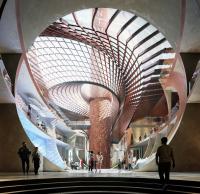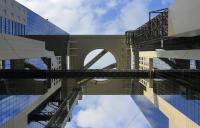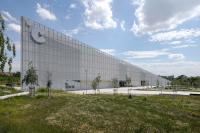% Arabica, Wide & Narrow Alley
China
First built during the Qing Dynasty’s Kangxi period in Chengdu, China, Kuanzhai Alley mainly consists of three northwest-southeast streets, which are connected by lots of small alleys in a crisscrossed pattern. During the early stage of the Republic of China period, among the three main streets, the wider street was named “Kuan Alley” (Wide Alley), the narrower street was named “Zhai Alley” (Narrow Alley), and the one with a well was named “Jing Alley” (Well Alley). This is how the Kuanzhai Alley got its name. As a historical and cultural landmark in Chengdu, Kuanzhai Alley is a renowned busy commercial and cultural area. While Jing Alley features relatively peaceful and tranquil atmosphere in the midst of noise and bustle because it has shops only on one side and a street wall on the other.
Sits next to a small square in the middle of Jing Alley, the project site is a traditional western-Sichuan residential architecture. The one-entry courtyard house has originally a main room with a courtyard and surrounding rooms on the two sides. The south and west sides of the architecture are featured with traditional wooden storefronts, respectively facing to Jing Alley and the square. The traditional architecture with grey bricks and black roof tiles is plain and elegant, reflecting the memories of the city of Chengdu. Today, a lot of natives still live around the Jing Alley, which helps the area maintain an authentic Chengdu lifestyle.
- Arquitectos
- B.L.U.E. Architecture Studio
- Ubicación
- China
- Año
- 2020
- Cliente
- % Arabica
- Equipo
- Shuhei Aoyama, Yoko Fujii, Lingzi Liu, Dejing Zou, Masaya Kawashima

































